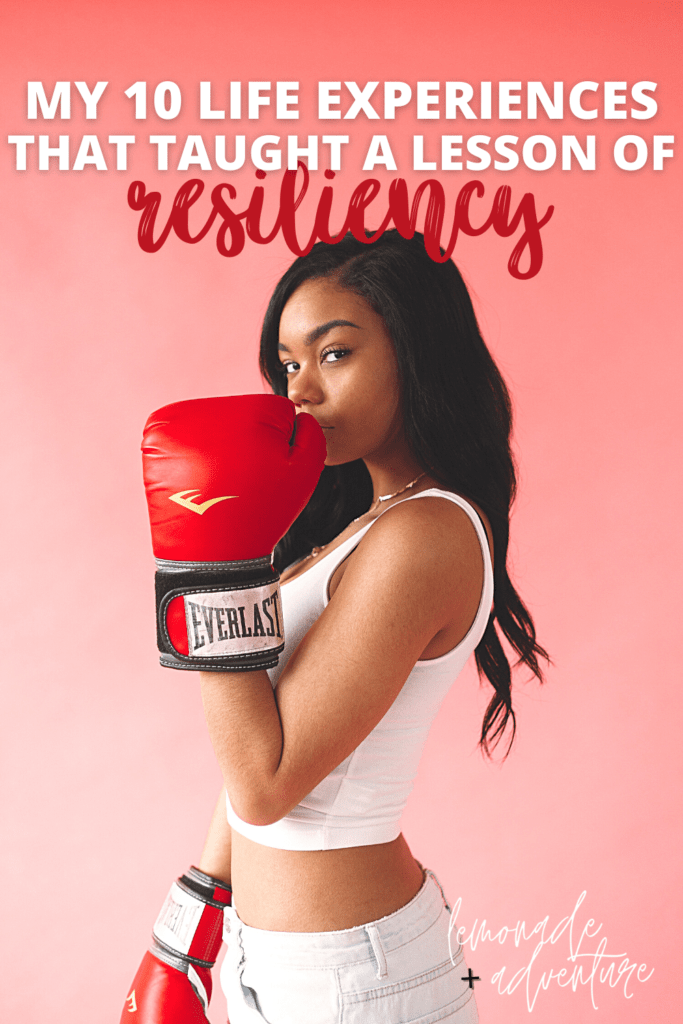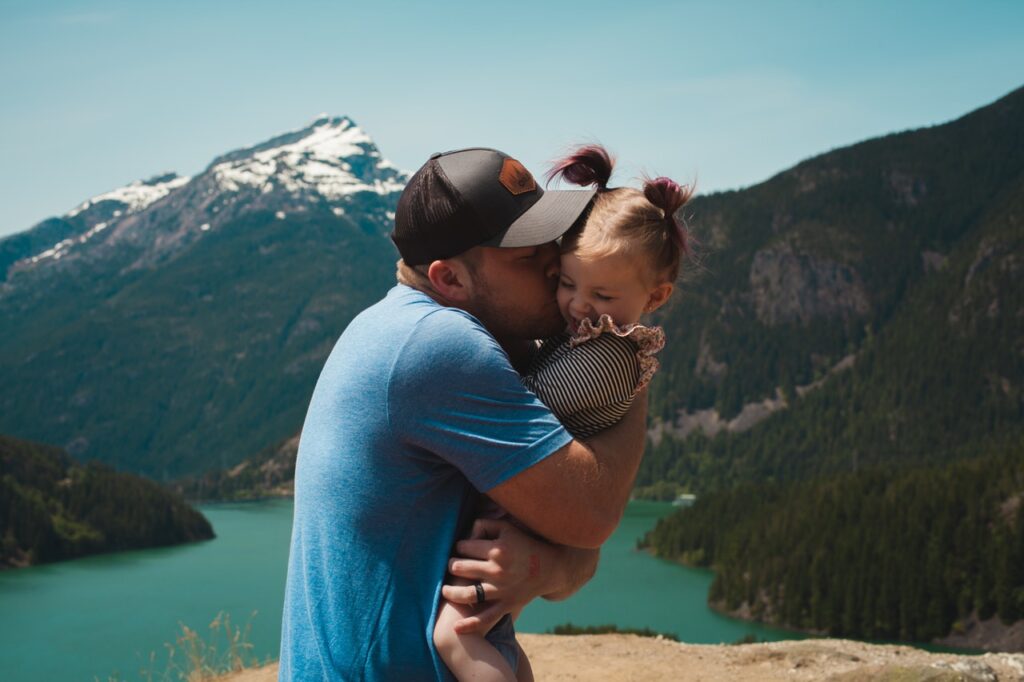As we grow older, it’s easy to forget what we have learned. But I didn’t want to forget them, therefore here are my 10 life experiences that taught me a lesson.
After entering a decade that is seen as the beginning of “the rest of your life,” I am now officially in my 30s.
Even with that rosy picture, it still felt like something of an ending, and it’s a good time to look back. After all, I have lived for 30 years now, and I’ve had my fair share of life experiences. The fun, the dull, the exciting, the painful, and everything in-between.
If you’re looking for an easy read this isn’t it, sorry to say. However, if you’re wanting to read more of a dissertation on lessons a woman on the internet learned I suggest you grab some tea and buckle up.
So, from the heartache and heartbreak to the greatest moments of my life, here are 10 life experiences that taught a lesson that I’ve found worth remembering.

Table of Adventures
1 // Everyone won’t like you no matter how hard you try.
I always wanted to be that girl in school. The super-popular one, with the cute boyfriend and the legions of friends. I’m sure I’m not alone in that envy, but even though I did manage to make a good couple of friends in high school, I was far from the most popular person in the building.
So what went wrong?
Honestly… nothing. Nothing inside of my control anyway.
Being popular was sort of a big deal to me at the time, because when I was even younger, a lot of kids made fun of me because of my dry skin. In elementary school, you don’t really understand complexion and why to use lotion, and it wasn’t until I entered high school that I actually figured that out.
By that point, though, I was already pretty shy and I had trouble expressing myself. I felt like I looked like a bumbling idiot a lot, not because I didn’t know what I wanted to say, but because every time I opened my mouth, I would say it wrong.
I’d be lying if I said I was completely over that.

But anyway, when I was 12, we moved out of New York City to Connecticut. It was only a 40-minute move, and we were still in a small city-slash-large town, but, to me, it felt like a chance for a fresh start. I wanted to be popular there, and then everything would fall into place, right?
Wrong.
I never became that person. Not even close.
I was friendly and met everyone. I baked cookies, said hi in the halls, and hung out with people whenever I was allowed to. But the fact is, a lot of people already had their own friend groups. I sort of carved mine out, but I didn’t magically turn into Blair Waldorf. Other girls were richer, dressed better, were part of sports teams, and so on.
The realization that it was all okay hit me right at the tail end of high school. Up until that point, this perceived competition really stressed me out, but when it finally hit me that I was going to college and that all this was going to be behind me, I realized how much energy I had wasted vying for affection from people who didn’t owe it to me.

I had great friends in high school. I also had a couple of people who weren’t my biggest fans, due to some drama or another. I had teachers that loved me, some that didn’t seem to care for me, and a whole lot of people who were somewhere in the middle.
That’s how life is sometimes, and if you obsess about getting everyone to like you, you’re going to spend a whole lot of emotional energy and get very little from most people in return.
And you know what? I’m a hysterical, goofy person, and some people don’t like goofy. Some people don’t like my personality and that’s alright.
The way I see it now, those people then miss out on getting to know me, and that’s okay.
2 // You are truly beautiful as you are.
I also don’t think I’m alone in this struggle either, but for a long time, I struggled with how I perceived my weight. I really thought I was fat all throughout high school and into college. I have naturally large legs; muscular calves and thick thighs. Out here saving those lives, you know?
But they aren’t really defined, since I don’t run a lot. So, in high school, this just made me think “fat.” This is the narrative I repeated to myself over and over and over again.

While I love my mom, she didn’t exactly help – teenage girls are pretty sensitive people, and when you say something like “well, you’ll slim down when you get taller,” we hear “you’re fat now, but it’ll get better when you grow.”
But then I never grew! So I just thought my mom thought I was fat!
There isn’t a specific point that I suddenly realized I was being ridiculous; putting on a little extra weight after college actually helped, because when I looked back at my pictures and saw that I was actually kind of a babe. I also spoke with my mom about this whole thing, and that was a pretty good way of putting these feelings to rest.
Even if the person can’t wave a magic wand and fix the issue, airing out things can help release a lot of pent-up emotions, so that way you can move on. It helps.
One thing I want to add is that there were two parts to this process… it’s one thing to say “wow, I was being ridiculous criticizing my weight back then, look at me now.” After that, you have to realize that you’re still being ridiculous.
Read this again and again if you struggle with this as I did: you are being ridiculous right now by being hypercritical of your weight.

I am never going to have a thigh gap. I’m never going to be built like Gwyneth Paltrow. I’m built like me. The truth is pretty simple: I’m beautiful as I am. You’re beautiful as you are.
Refusing to accept that can create havoc in your mind and in your body. It is a battle that is far from unique to me and I’m not trying to put this post out there as a simple solution to a complicated problem, but it is a lesson I learned.
Corny as it is, loving yourself as you are is a great way to reject all the stress that the world will try to place on your shoulders.
Besides, everything is temporary. Skinny people gain weight. Heavier people lose it. We’ve all got a finite number of days on this planet, and you can spend them however you want. You wanna drop a couple of pounds? Go for it!
Just don’t let that desire speak to you from a place of self-loathing, because life is too short for that. You’re gorgeous… just recognize it.
3 // You don’t owe anyone forgiveness.
People tell you forgiveness is a virtue and sometimes it is. Holding onto anger and resentment isn’t healthy and there’s a lot of wisdom in the old advice “don’t sweat the small stuff.”
But there are always exceptions to rules, and forgiveness is also a personal thing. There’s a difference between coming to peace with the past and absolving someone of their role in it.
When I think about this lesson, there are two main points in my life I immediately jump to. The first is when I was assaulted in middle school and no one did anything to help. The second has to do with my stepfather.

In middle school, I ended up in some stupid fight about something I don’t even remember. On the other side of the argument was one of the more popular boys in my class, and he picked on me incessantly. In the middle of the fight, he hauls off and starts grabbing at me, choking me.
I eventually pushed him off me, or maybe he stopped on his own, but as I looked around and saw a bunch of our classmates there, I realized that no one helped. No teachers came to my aid, no students spoke up, and, to my knowledge, he wasn’t even punished.
I know kids can do stupid things. I know he was as young as I was. And I know that all those bystanders who could have intervened were our age as well. But at that age, I knew not to physically assault someone, so why didn’t he?
The fact is, he attacked me and they all did nothing, and when I think back on that day, neither of those actions was okay.
Different topic, but similar moral: my stepdad has never been much of a ‘dad’ to me. He spent no time with my brother or me during our childhood, he was emotionally abusive to my mother and a rather physical disciplinarian with us.

He ran his relationship with my mother into the ground by keeping his priorities on anything and everything else besides our family but refused to sign divorce papers until only recently. And in spite of his claims to want to make the marriage work, he was unfaithful, and he didn’t do any of the work required to make those words mean anything.
That one is still a bit sore for me if you noticed, but the fact is, these are the facts of my life. I can’t change them. And I can only, in a lot of ways, come to peace with the fact that these things have happened.
But don’t buy into that feel-good gaslighting that in order to move on you need to forgive everyone who has wronged you. You don’t. You can, quite simply, move on.
See, for a lot of people, forgiveness involves gaining a sense of absolution. You’re saying that the past can stay in the past and that we’re going to ‘move on’ from it.

In the case of my stepdad, however, I don’t want to move on with him in my life. I don’t view it as healthy to pretend what he did to me was okay. I can accept that it happened and I can examine my own feelings of anger, resentment, whatever it is that I’m working through.
But having this allegedly cathartic moment where I tell him that what he did was okay so that he can feel better about his mistakes, and that mitigating his guilt over the past is somehow going to unchain me from it… I don’t buy it.
I work on myself and try to meditate and so on. He can do the same. He can find a balance that allows him to look at what he’s done and accept where it’s gotten him.

And so that’s the lesson I learned. Acceptance is alright. Moving on is necessary. But forgiveness is entirely optional, and it should only be given on your terms, not on the other person’s.
Don’t guilt yourself into forgiving people who you don’t feel deserve it.
4 // You may have hurt someone badly, even if you didn’t think you did. Sincerely apologize and understand that those people don’t need to accept it, forgive you, or talk to you ever again.
I have hurt a lot of people in my life.
Sometimes my intentions were good but were not construed well. Sometimes I went about a particular problem in the wrong way and I ruined relationships that I had no intention of ruining.
One time over one summer that I worked as a camp counselor I had a friend text a boy I had really liked (I really have no idea why I did this, sigh) that I was breaking it off with him. He basically never spoke to me ever again even though I had tried everything – sending messages, texting, calling, sending smoke signals.

My hope was that I could tell him I was sorry, but he wasn’t interested in hearing from me.
Eventually, I even ran into him in person, completely by accident. I remember he was cordial, but the encounter was so short that I didn’t really have the opportunity to apologize.
I also remember the visceral reaction I had upon seeing him and how it made me realize I still regretted how I had hurt him. At the end of the day, he had shut the door on my chance to apologize and, out of respect for him, it was his choice whether to reopen it or not. And he didn’t, so that’s something I have to accept.
5 // Take responsibility for your actions.
When you make a mistake, you need to own up to it.
I hadn’t intended to hurt their feelings, but that’s what had happened. So I remember talking to my supervisor and the question came up: “what are you going to do about it?”

In that case, I sat down with the kid and apologized. And I got to know them better and managed to change the negative experience into a lesson learned for both of us. The child learned that it was okay to say something when someone hurts your feelings, and I learned that what one person finds harmless can really upset someone else.
The stakes only get higher as you get older, so I’m thankful that I learned at a relatively young age that the best thing you can do when you make a mistake is own it, then try your best to fix it.
6 // Speak up when someone has hurt you, overstepped boundaries, or makes you feel uncomfortable.
This is a lesson we’re usually told as youngsters, but it bears repeating over and over. In a way, I learned it from that child I mentioned in the last passage, but it also took me several more years until it clicked that the same lesson applied to me.
Hint: the same lesson probably applies to you and your situation, too.
Some people do not take boundaries well, but at the end of the day, there’s nothing worse than having someone walk all over you. You can’t be a “yes man” for your whole life, nor can you just go along with everything. Even if you’re normally pretty easy-going, it is okay to have boundaries.

When someone hurts you – speak up for yourself! When someone oversteps their boundaries let them know. If you’ve never brought it up before, this can be how you tell them what you expect from them, and if you have spoken to them about it, this can be your way of reminding them that your boundaries aren’t optional.
Either the person will take it well or they won’t. That isn’t within your control. But if they are understanding, your relationship will get stronger, and if they aren’t receptive… at least you have a clear understanding of how much they respect you (or don’t, frankly).
7 // Find people you can trust completely, then seek help from them when you need it.
There will be times where you are in trouble. And times when you just need someone to talk to. These aren’t things to be ashamed of, these are facts of life.
Personally. Professionally. In all things. Integrity and honesty are not traits you can fake, and you will earn more respect from your peers (and yourself) if you are humble enough to admit your mistakes and responsible enough to work to fix them.

If you’re the one taking point on correcting a mistake, you’re also going to catch less flak for it, and you’re going to show everyone around you that you can take criticism and that you’re willing to learn.
The experience that taught me this was working for an after-school program when I was a teenager. I had joked around with a lot of the children and one child had a softer shell than the rest of them and ended up very upset.
And speaking of ‘life,’ the truth is we all have several ‘lives’: our financial life, our professional life, our love life, our emotional and mental health… Being an adult is all about multitasking all these very different functions, but the fact is very few people are good at all of these things.
So here’s where self-awareness comes into play. Are you great at some of these areas, but lacking in others? That’s okay, it’s actually normal. Think about all the successful people who have a mid-life crisis because they ignored all their stress and emotions for 20 years, focusing entirely on their financial and professional well-being.
You wouldn’t expect a business tycoon to be an expert in dating, and you wouldn’t necessarily take stock tips from Shaq, so why are you suddenly expecting yourself to be a rockstar in all these different fields?

So find someone you can trust and talk to them about what you feel you’re lacking. Sometimes all it comes down to is confidence, but other times you can learn something by leaning on someone else’s expertise.
At the very least you end up getting some stress off your chest, so you don’t end up bottling up your anxieties until they start seeping out in other ways.
I have a bad relationship with money, for example. I get anxiety where I’ll have trouble sleeping and my chest feels tight when I talk about it, and when I was going to school in Virginia, it really got bad. I was working part-time, but relying on my stepdad to help support me (broke college student and he literally told me he would), but when it came down to actually providing said support, the money was nowhere.
I was getting mostly As and Bs, so it wasn’t the grades he objected to, instead he flat-out denied that he had ever agreed to help.

Regardless of how much of a keeper (sarcasm!) he was, the fact is that I was in the situation I was in. And it caused me so much anxiety that it started seeping into other aspects of my life.
It became harder to study because I was tired, and I was tired because I was having trouble sleeping, and then I tried to stop looking at the mail because the bills kept piling up and if I thought about it I would get distracted, but then I got hit with late fees, and it’s all a vicious cycle.
I only got out of that predicament by asking for help. I talked to my mother. I talked to my boyfriend. I talked to my aunt. I figured out what I could do to repay them later. And the fact is: they wanted to help, once they realized I needed it. They were more than happy to step up, but they didn’t know I needed help.

Typically what happens when we feel overwhelmed with something we aren’t very good at, we avoid it. We don’t express what we’re going through, because talking about it necessitates thinking about it. And yet, when you do talk to someone about it, you always feel so relieved, like a weight is off your shoulders.
Lean into that feeling. Avoiding uncomfortable subjects can be tempting and you don’t need to spend every day embroiling yourself in your anxieties, but it can also be a trap.
If you find someone you can rely upon for honest advice, you can get a lot farther by trusting them to help you fix the issues, instead of just ignoring them and hoping they never explode.
8 // It’s OK to restrict access to specific places in your life to specific people.
Remember I said that not everyone is worthy of your forgiveness? Not everyone is worthy of your time, either.

I don’t say that to be stuck-up or judgmental, either. I don’t mean “the poor” or “people less popular than you.” I mean people who make your life worse. You only have so much time in a day, week, month, and year. How much of that limited time are you going to dedicate to someone who negatively impacts your life?
For example, there’s my “dad.” Less than a father, he’s simply the guy who married my mother. He’s a net negative for my life. Think Hiram Lodge from Riverdale, but not a mobster… or successful.
I’m not trying to come off jaded or harp on him unnecessarily. I’m not going to rehash all the ways he’s wronged me, or repeat things from earlier in the post. I only reiterate this here to say: this is my situation with someone I view as a negative influence in my life, who I have cut out of it.
This view of mine might be somewhat generational. I know older people I talk to tend to push back a little more when it comes to respect for one’s parents, but my question to the audience now is “how far does that go?”

I ask myself the question: “What, if anything, do I owe this man who did provide some of the financial support for my upbringing, but has also repeatedly let me down, lied, cheated, mentally abused me, my brother, and my mother; the whole nine yards? What do I owe him?”
Some people would say, “Everything, he’s your father, you should respect him for the rest of your life.” I say no. Respect is earned, even towards your parents.
Parents get respect because they love and they care for their children, and if they don’t, their children shouldn’t be shackled to notions that they are somehow supposed to dote upon their abusive elders for the rest of their lives.
That’s not healthy. It’s… well it’s a lot of things, but it isn’t healthy.
Asking these questions. Drawing a line for yourself – setting boundaries for yourself – and enforcing them. That is healthy.

I finally got this from my mother, who decided that enough is enough. She’s divorcing him, after decades of putting up with his crap. And in talking with her about her anxieties, her resentments, and her uncertainties about the future, I realized that I echoed a few of them.
It is very easy to remain comfortable. You know what they say about “a body in motion remains in motion?” The other half of the quote is, “a body that’s napping, remains napping.” Or something like that.
Even if the behavior is not healthy or helpful, we can be tempted to stick with it because it’s familiar. And even if the person is toxic as tar, we will put up with them because of this fear of… seclusion, maybe? Loneliness? A lack of other options staring you in the face?
Since the post is about me and I don’t want to just guess at my mother’s true feelings about a super complicated issue, let me say that the struggle for me is that I have this toxic man, this miserable person, on one hand, and, on the other, I have the fact that I want to love my dad. I want to have a father I can respect and love.

Who wouldn’t want a father figure in their life? So I have this mental abuser standing over there, who I allow into my life because I am afraid that without him I will feel lacking. I won’t have that sense of a “dad” that I can lean on when times get tough.
But here’s the kicker: I could never rely on him anyway. This idea of a father figure is one that I am going to be lacking, whether or not my stepfather is in my life or not. Whether or not I allow him to continue this endless cycle of disappointing me.
So, at the end of the day, cutting out this man is less about rejecting that role that a father is supposed to play in someone’s life, and more about saying “you are not a positive influence in my life and I am done pretending otherwise.”
When all is said and done, you don’t have unlimited time to spend on everyone. Sometimes you even have to limit the time you spend with friends, bosses, co-workers, etc. This becomes tougher when it comes to family because there’s a lot of pressure to put family first.

My lesson for the day, the TLDR version anyway, is that blood isn’t thicker than water when it comes to how someone treats you. If your family doesn’t respect you, love you, and make you stronger, then the logical conclusion is to limit how much time and energy you allow for them.
That doesn’t have to be an absolute cutting-off, but it could be. The only one who can really decide what is appropriate is you. If you have a family member that invalidates you, hurts you, or generally makes your life worse, you are allowed to cut that person off.
Your sanity is worth so much more than empty quotes about family from people who use them as weapons.
9 // If your work life is trash, find something better, try to up your education game or quit if you can.
I remember working for a law firm, and as someone who is very lively and happy, that place sucked the life out of me.
I had a co-worker who abruptly quit and I was thrust into handling the office all by myself for practically two months before a replacement was found. I’d already put in vacation time from months prior before this occurred, too, and I wasn’t giving them up for anyone.
I was uncomfortable in wanting to say no to attorneys who needed work done that I just couldn’t get to when they wanted and they overstepped boundaries that I otherwise wouldn’t have let people in my personal life get away with.
So why did I let it go on? Because I felt like I had no other option.

Well, they ended up hiring someone to take my place even though I had streamlined processes and worked my absolute butt off for them. They hired someone to take my place even though I rearranged my days off, and stayed late if I needed to.
All those times I remembered how certain clients liked their coffee so that my lawyers could have that little extra touch of sincerity to start their meetings? They still hired someone to take my place.
To them, it was a business decision and nothing more. But what that implies is that your feelings of loyalty to your employer aren’t necessarily misguided… but they might be.
Women especially are pressured to care so much about our families, so much about our jobs, to always go the extra mile, but if that never translates into reciprocated loyalty, why should we?
I was in a privileged place when I left that law firm and I could try to finish my education. I know that there are a lot of people who simply don’t have the means to do so, and that’s OK.

But if you are in a place in life where you can find something better, do it. If you are comfortable and that’s why you put up with the bullshit… update your resume.
Poke your head up out of the sand and just make sure you’re still on the right beach.
Because employers are going to pay you as little as they can get away with, not as much as you are worth. They are not going to pay you what your loyalty warrants, either. They are not going to give you extra vacation days or pay for your health care deductible if a medical emergency comes up.
I mean… if you find yourself working for the exception, forget this whole section, they deserve your loyalty. But for the vast majority, if you had a crisis in your life and you couldn’t work, they would simply replace you.
So if you’re not happy, consider replacing them. Stop settling for mediocrity.
P.S. If you’re looking for a way to learn information in order to leave your awful space try Coursera (it’s where I’m taking my Project Management course!)
10 // The longer you procrastinate to start something, the more overwhelmed you’ll feel. So be like Shia LaBeouf, and just do it.
I am the Queen of Procrastination.

I have had many ideas for YouTube channels that I had 10 years ago, thought about doing over and over again, and never did them. And then a channel comes out with the idea that I had and starts making millions. Of course, I then feel like a sourpuss because I’m terrified of starting something that I think won’t do well.
But, I tend to have good ideas. I suck at execution.
Even if you don’t have any good ideas, or you’re scared of the outcome, do it anyway. Bite the bullet and just do it.
I’ll use this blog, Lemonade + Adventure, as an example. I had wanted to start blogging over a year ago but didn’t think about it seriously until we were in the middle of the Pandemic of 2020. It wasn’t until I was laid off and needing something to do that I seriously looked into what I can do to support myself as a business owner. I chose to blog as one venture.

In terms of blogging as a business, if I had started earlier, I’d be much farther along already. But on the other hand, I can already see this starting to come together.
Whether, in 10 years’ time, I’m doing this or life leads me down a different path, I can’t say for certain right now. But I’ve got lessons that I’ve got to learn. And I know that I learn by doing.
So if you are like me, then stop overthinking and start doing.
Life Experiences That Taught A Lesson Conclusion
We all have life experiences that we can siphon a lesson or two from. You have lessons that you can learn from, too. I’d love to hear your stories of experiences you’ve learned from and the lessons you gleaned.
P.S. I was super sick when I wrote this so I’m surprised I got this all off my chest. Yay me, I guess? 😛
